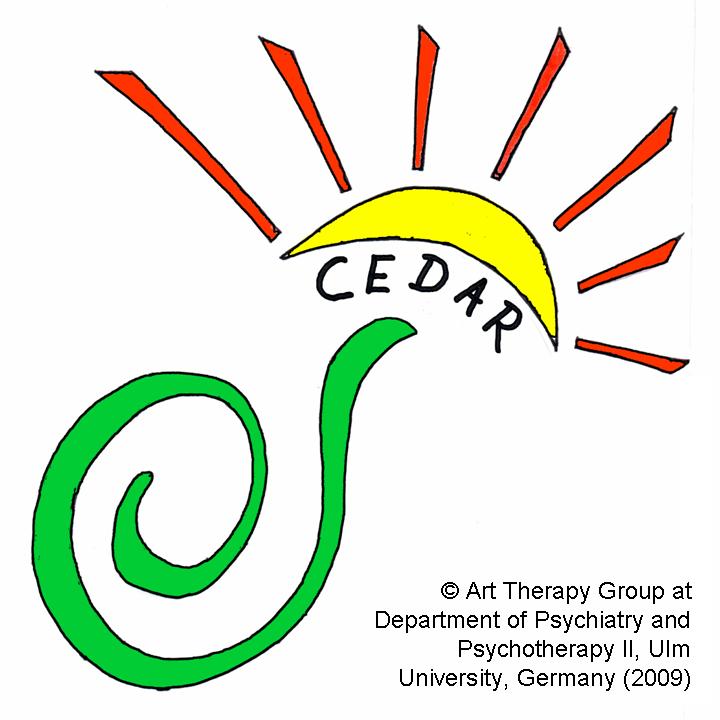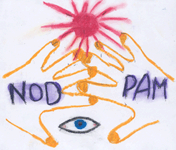Section Health economics and health services research
Head: Prof. Reinhold Kilian
This research team at the Department of Psychiatry II has been established in 2003. In the year 2012 the the Mental Health Research Unit split into two new sections: Section Health economics and health services research and Section Process-Outcome Research.
The section health economics and health services research deals with the analysis of the medical, social, psychological, economic and organizational factors of effective and efficient mental health services. This is based on a biopsychosocial model which considers the development and course of mental disorders in the context of the interaction of biological, psychological and social factors. Against this background, forming an interdisciplinary approach and the related application of a wide range of methods are important prerequisites of scientific knowledge gain.
The focal scientific working areas of the section include:
- the analysis of sociological, economic and epidemiological preconditions of psychiatric care;
- the development and advancement of criteria for assessing the results and the costs of mental health care needs and also of scientific methods for their detection and evaluation;
- the analysis of the contents, the effectiveness and efficiency of established psychiatric care services in light of their economic, socio-cultural, conceptual and organizational framework;
- the evaluation of the implementation, as well as the effectiveness and efficiency of innovative mental health care Services.
Research administration
Postal address:
Section Health economics and health services research
Department of Psychiatry II, Ulm University
Bezirkskrankenhaus Günzburg
Lindenallee 2
89312 Günzburg, Germany
Ongoing Projects

Verification of the suitability of the "platform model" as an instrument for personnel allocation in psychiatric and psychosomatic clinics
Duration: 04/2021 - 03/2024
Project website:www.eppik-projekt.info
Lead:
Priv. Doz. Dr. Markus Kösters, Department of Psychiatry II, Ulm University
Consortium partners:
Forum für Gesundheitswirtschaft gGmbH (Dr. Peter Brückner-Bozetti)
Universitätsklinikum Heidelberg, Heidelberg (Prof. Dr. Hans-Christoph Friederich, PD Dr. Ulrike Dinger-Ehrenthal, Prof. Beate Wild)
Deutsches Krankenhausinstitut e. V. (Dr. Karl Blum)
Cooperation partners:
DGPPN
DGPM
DGKJP
Staff Ulm University:
Priv. Doz. Dr. Markus Kösters
Dr. Johanna Breilmann
Kathrin Mayer
Thomas Klein
Finance: Innovation Committee of the Federal Joint Committee (Gemeinsamer Bundesausschuss, G-BA)
Funding: 2,026,730 €
Duration: 04/2021 – 03/2024
Summary:
With the aim of improving the determination of personnel requirements, a working group of scientific specialist societies and professional associations (platform personnel measurement) has developed a structure model (so-called "platform model") that is intended to enable the treatment effort to be assessed, taking into account requirement or treatment clusters as well as guideline-based treatment.
The EPPIK project aims to contribute to the evaluation and validation of the platform model. For this purpose, a basis is to be created in two sub-projects in order to finally make a target assessment of the personnel allocation for all professional groups for both psychiatry and psychosomatic medicine and psychotherapy (PSM-PT) based on the platform model. In the sub-project psychiatry, the reliability of the allocation of patients to treatment clusters is first checked for adult as well as child and adolescent psychiatry. In addition, prototypical guideline-compliant components of treatments are defined for case vignettes of the need cluster in order to enable an assessment of the treatment needs derived from the treatment guidelines across the professional groups. In the PSM-PT sub-project, due to a different work and supply structure as well as a different focus of the disruption patterns, a modification of the personnel allocation is necessary. For the PSM-PT, the validity of the treatment clusters developed by experts as part of the platform model should therefore be checked. In addition, on the basis of the actual personnel allocation and the prototypical therapy plans of the treatment clusters created in the project, it is possible to estimate the target staffing requirements.
If successful, the project will develop guideline-oriented prototypes for the needs or treatment clusters, which allow a structured, evidence-based and expert-based assessment of job-specific personnel requirements.
Using Peer Support In Developing Empowering Mental Health Services
Duration: 01/2018 - 12/2022
Lead: Prof. Bernd Puschner
Project partners:
University of Nottingham, UK
Universitätsklinikum Hamburg-Eppendorf, Germany
Butabika National Referral Hospital, Uganda
London School of Hygiene and Tropical Medicine, UK
Ifakara Health Institute, Tansania
Ben-Gurion University of the Negev, Israel
Centre for Mental Health Law and Policy, India
Staff Ulm University:
Prof. Bernd Puschner
Dr. biol. hum. Annabel Sandra Müller-Stierlin
Prof. Reinhold Kilian
Dr. phil. Silvia Krumm
Eva Paul
Ramona Hiltensperger, M. Sc.
Finance: EU (HORIZON2020), Global Alliance Chronic Diseases (GACD)
Funding: 3,100,000 €
Duration: 01/2018 – 12/2022
Background: A large number of people with severe mental illness receive no treatment. This treatment gap is largest in low and middle income countries (LMIC), with detrimental effects on individuals (social role, quality of life, stigma) and societies (equity, costs). Peer support is an established intervention involving a person in recovery from mental illness being employed to offer support to others with mental illness. Peers are an untapped resource in global mental health.
Objective and methods: UPSIDES will scale-up peer support interventions for people with severe mental illness in high-, middle- and low-resource settings. An international community of practice for peer support including peer support workers, mental health researchers, and other relevant stakeholders in Europe, Africa and Asia (8 study sites in 6 countries) will be established. Peer support will be implemented adapted to the local context. Using a mixed-methods approach, the impact of peer support will be rigorously evaluated at the levels of patients and peer support workers (psychosocial and clinical outcomes), services (cost-effectiveness, return on investment), and implementation (adoption, sustainability, organisational change). Evidence of best practice will be disseminated to local, national and international stakeholders ensuring sustainability and spread.
Expected impact: UPSIDES will improve the lives of large numbers of citizens in Europe and LMIC by modifying mental health systems using the expertise of people with personal experience of mental illness. Utilising peers will provide an essential driver in low-income settings relieving the scarcity of human capital. Performance of mental health services will be maximised through actively involving and empowering service users, generating system changes towards patient-centeredness, recovery orientation, and community participation. UPSIDES will transform health systems towards realizing mental health as a human right.
Completed Projects
Documentation and comparison of the involuntary psychiatric admission-praxis in rural areas of Bavaria, Baden-Württemberg and Mecklenburg-Western Pomerania
Duration: 2008 - 2010
Implementation and Validation Study of Quality Indicators for Integrated Care of People with Schizophrenia
Duration: 2010 - 2011
Sector-independent Treatment Coordination by Means of Online Assessment for Substance-related Disorders
Duration: 10/2020 - 09/2023
Lead: M.D. (Dr. med.) Maurice Cabanis, Clinic of the State Capital Stuttgart gKAöR
Head of Evaluation: Ph.D. (Dr. biol. hum.) Annabel Sandra Müller-Stierlin, Department of Psychiatry II, Ulm University
Project partners:
Clinic of the State Capital Stuttgart gKAöR, Center for Mental Health, Clinic for Addiction and Dependent Behavior (Lead of main project: Dr. Maurice Cabanis)
Facilities of the Stuttgart addiction support network (Release Stuttgart e.V., Lagaya Stuttgart e.V., Caritas Association for Stuttgart e.V., Evangelical Society Stuttgart e.V.)
Company Health Insurance Fund: Daimler Betriebskrankenkasse (Daimler BKK)
Staff Ulm University:
Paulina Achtermann, M. Sc.
Sebastian Cornet, B. Sc.
Anna Debler, B. Sc.
Christian Götzl, M. A.
Jutta Lehle, B. A.
Ida Müller, M. Sc.
Elke Prestin, Dr. phil.
Magdalena Weimer, M. A.
Staff Clinic of the State Capital Stuttgart gKAöR:
Jeanette Röhrig, Ph.D. (Dr. phil.)
Vanessa-Emily Schoch, Ph.D. (Dr. oec.)
Lorenz Sutter, M.Sc.
Ariadne Katsioulis, M.A.
Lena Kiebel, B.A.
Finance: Innovation Fund of the Federal Joint Committee
Funding: 2,256,000 € (overall)
Duration: 10/2020 – 09/2023
Summary:
Within the German addiction support system, there have been many known issues and challenges over the years. In addition to adherence to the concept of abstinence, which has long since given way to modern concepts in countries such as Great Britain or the Netherlands, the low level of networking between individual sectors and a lack of integrated interventions characterize a central problem of addiction support. According to current studies, less than 5% of people with addiction problems in Germany receive addiction-specific therapy. In addition, it is often unclear which criteria are used by treatment providers to decide which interventions make the most sense for those affected.
A Regional Competence Center is therefore being established as a model for the Stuttgart region. Through this competence center, people struggling with addiction issues can be referred to the various specialized services of the Stuttgart addiction network. Those affected are first offered a web-based screening; and secondly, they enroll in a standardized diagnostic process, which takes place in person. After coordinating with the individual treatment goals of those affected, a concrete treatment plan, known as the Treatment Assistant, is then drafted. In addition, those affected are supported in being referred to suitable facilities.
The establishment of a sector-independent treatment coordination is accompanied with an evaluation by the University of Ulm. The evaluation design can be divided into four sub-studies. In the first two sub-studies, the coordination platform will be adapted to local specifics with the help of a survey for the staff of addiction services, and in focus groups with patients, treatment providers, payers, and other stakeholders. The third and fourth sub-studies aim to evaluate the effectiveness and cost-effectiveness of the ASSIST intervention. This controlled, randomized study will examine whether a coordinated, web-based approach of diagnostics and treatment leads to higher satisfaction among affected clients and/or to a change in the utilization of care services compared with standard care. Sub-study 4 complements the process evaluation with the subjective views of patients, treatment providers, and other stakeholders. With the help of those focus groups, inhibiting and facilitating factors of treatment coordination can be evaluated.
If proven to be successful, this project will lend support to treatment providers as well as offering availability to those affected at a low-threshold and as a low-cost option for improved addiction-related care, tailored to their specific needs.
Service Provision of Mentally Ill Persons in Germany: Provision Practice and Cooperation of Care Providers
Duration: 2009 - 2010
Publications:
- Bramesfeld, A.; Ungewitter, C.; Böttger, D.; El Jurdi, J.; Losert, C.; Kilian, R. (2012): What promotes and inhibits cooperation in mental health care across disciplines, services and service sectors? A qualitative study. In: Epidemiol Psychiatr Sci 21 (01), S. 63–72. DOI: 10.1017/S2045796011000539
- Ungewitter C, Böttger D, El-Jurdi J, Kilian R, Losert C, Ludwig K, Steinkohl V, Bramesfeld A. (2012). Struktur und Kooperation in der Versorgung psychisch Kranker Service structure and cooperation in mental health care. Nervenarzt (DOI 10.1007/s00115-011-3433-1)

Child and adolescent mental health in enlarged Europe: development of effective policies and practices
Duration: 2006 - 2008
Publications:
- Kilian, Reinhold; Losert, Carolin; Park, A-La; McDaid, David; Knapp, Martin (2010): Cost-Effectiveness Analysis in Child and Adolescent Mental Health Problems: An Updated Review of Literature. In: International Journal of Mental Health Promotion 12 (4), S. 45–57. DOI: 10.1080/14623730.2010.9721825
- McDaid, David; Park, A-La; Knapp, Martin; Losert, Carolin; Kilian, Reinhold (2010): Making the Case for Investing in Child and Adolescent Mental Health: How can Economics Help? In: International Journal of Mental Health Promotion 12 (4), S. 37–44. DOI: 10.1080/14623730.2010.9721824

Clinical decision making and outcome in routine care for people with severe mental illness
Duration: 2009 - 2012
Finance: European Commission, 7th Framework Programm (Contract No. 223290)
Identifier: FP7-HEALTH-2007-B
Project-Website: www.cedar-net.eu
Publications:
- Puschner B, Steffen S, Slade M, Kaliniecka H, Maj M, Fiorillo A, Munk-Jørgensen P, Larsen J, Égerházi A, Nemes Z, Rössler W, Kawohl W, Becker T (2010): Clinical Decision Making and Outcome in Routine Care for People with Severe Mental Illness (CEDAR): Study protocol. BMC Psychiatry, 10 (90) (http://www.biomedcentral.com/1471-244X/10/90)

Evaluation of an intervention program for psychiatrically ill children of parents with psychiatric disorders – a randomized controlled multicenter trial
Duration: 04/2014 - 03/2017
Project management:
Prof. Dr. habil. Silke Wiegand-Grefe (Medical School Hamburg)
Project partners:
Prof. Dr. Martin Lambert (UKE)
Prof. Dr. Karl Wegscheider (UKE)
Prof. Dr. Franz Petermann (Universität Bremen)
Prof. Dr. Reinhold Kilian (Universität Ulm)
Prof. Dr. Ullrich Bauer (Universität Essen/Duisburg)
Dr. Doris Mallmann (Klinik Rheinhöhe, Vitos Rheingau)
Prof. Dr. von Klitzing (Universitätsklinikum Leipzig)
Staff Psychiatry II, Ulm University:
Prof. Dr. Reinhold Kilian (project management Ulm University)
Maja Stiawa M.A. soz. (project coordination)
Maike Gäns (student assistant)
External staff:
Artur Geis, Dipl.-Psychologe, Psychologischer Psychotherapeut, Mitarbeiter des Erziehungs- und Jugendhilfeverbund (EJV), Beratungsstelle Günzburg
Jörn Eugen, Dipl.-Sozialpädagoge, Systemischer Berater, Mitarbeiter des Erziehungs- und Jugendhilfeverbund (EJV), Beratungsstelle Illertissen
Finance:The project is funded by the German Federal Ministry of Education and Research (grant number BMBF- O1GY1337).
Total funding: 902.772,00 €
Funding Ulm University: 163.919,00 €
Duration: 01.04.2014 – 31.03.2017
Background:
Children of parents with a mental disorder have a high risk for developing psychiatric disturbances themselves. The risk for developing a mental disorder is much higher among children of mentally ill parents compared to children of mentally healthy parents. The increased specific and non-specific risks for developing a psychological disorder are shown in multiple studies on children of depressed, bipolar, schizophrenic and anxious parents, as well as children of parents with OCD, substance abuse problems or personality disorders. Children of parents with a depression disorder, in the inpatient child and adolescent psychiatry department show significantly longer ambulatory treatment periods, an increased need for inpatient treatment, are exposed to more psychosocial stressors, have consulted more mental health professionals and were more often advised to follow subsequent treatment.
Recent studies have shown that 50% of children whose parent/s suffer from a mental disorder already suffer from mental disorders themselves. Usually, these children do not receive professional treatment because parents feel guilty and fear stigmatization. Intervention programs for children that begin with intensive work with the parents, or family orientated interventions seem, after assessment of demand, to be especially suitable because these types of interventions include work on parental anxiety. Thus, the child can receive treatment with the basis of a trusting relationship between the therapist and the parents. Currently, the CHIMPs-intervention program is the only intervention program that has been evaluated in German-speaking regions, and an evaluated intervention program has yet to be implemented in the mental health care for this high risk group.
Objective:
The central aim of this study is to demonstrate the long term effectiveness of the intervention program in the practical field, compared to a control condition, in which the patients receive the usual aftercare after discharge from a psychiatric clinic (TAU=treatment as usual).
Method:
The study represents a prospective, randomized and controlled multicentre-study, contrasting one intervention and one control group within a pre-post design and one catamnesis (after 12 months). The measurement will be ruled out indirectly (for the pre-postmeasurement) as well as directly (at the end of a treatment). Within the data collection, the perspective of the psychiatrically ill parent, the partner, each child and the therapist will be considered. Children between 4-9 years of age will be evaluated only by the parents and the therapists, from 10 years on, an additional self-report-form will be filled out by the child.
The aim of this systematic review is to summarise the evidence pertaining to the effects of guideline implementation in specialist mental health care in the view of specific implementation strategies.
Duration: 2012 - 2014
Publications:
- Barbui C, Girlanda F, Ay E, Cipriani A, Becker T, Koesters M (2014) Implementation of treatment guidelines for specialist mental health care. Cochrane Database Syst Rev 1:CD009780. doi: 10.1002/14651858.CD009780.pub2
- Girlanda F, Fiedler I, Ay E, Barbui C, Koesters M (2013) Guideline implementation strategies for specialist mental healthcare. Current Opinion in Psychiatry 26:369–375. doi: 10.1097/YCO.0b013e328361e7ae
- Koesters M, Girlanda F, Ay E, Cipriani A, Barbui C (2012) Implementation of treatment guidelines for specialist mental health care of severely mentally ill patients (protocol). http://dx.doi.org/10.18725/OPARU-2743
Systematic Evaluation of the „Efficacy-Effectiveness Gap” in the Treatment of Depression with Venlafaxin and Duloxetin
Duration: 2011 - 2013
Publication:
- Kösters M, Holtrup AC, Fiedler I, Becker T (2013) Systematic evaluation of the „efficacy-effectiveness gap“in the treatment of depression with Venlafaxine and Duloxetine (protocol). http://dx.doi.org/10.18725/OPARU-2840

Effects of antipsychotic long-term treatment on the functional impairment and the subjective quality of life of patients with schizophrenia under atypical neuroleptics
Duration: 03/2005 - 12/2009
Outcome monitoring and outcome management in inpatient psychiatric care
Duration: 06/2005 - 11/2007
International Standard Randomised Controlled Trial Number is: ISRCTN93197945
Further information: http://www.isrctn.com/ISRCTN93197945
The development of a method for the measurement of empowerment in the psychiatric treatment of people with severe mental disorder
Duration: 2008 - 2011
Enhancing the Quality of Life and Independence of Persons Disabled by Severe Mental Illness through Supported Employment
Duration: 2003 - 2005
European Profile of Prevention and Promotion in Mental Health(EuroPoPP-MH)
Duration: 02/2011 - 09/2011
Lead: Prof. Dr. Reinhold Kilian, Dr. phil. Silvia Krumm
Duration: 2007 - 2009
Publications:
- Krumm S (2010): Biografie und Kinderwunsch bei Frauen mit schweren psychischen Erkrankungen. Eine soziologische und sozialpsychiatrische Untersuchung. Bonn: Psychiatrie-Verlag
- Krumm S, Kilian R, Becker T (2011): „Ich werde sie sicherlich nicht einfach so in die Welt setzen…“. Der soziale Kontext des Kinderwunschs aus der Sicht von Frauen mit psychischen Erkrankungen. Eine qualitative Studie. Psychiatrische Praxis 38, 23–30
- Krumm S, Kilian, R, Becker, T (2010): "Ein Kind wäre schon ein Wunsch..." Kinderwunsch und psychische Erkrankung aus der subjektiven Sicht betroffener Frauen. Psychiatrische Praxis 37, 134-41

Help and consultation for families with a mentally ill parent
Duration: 03/2006 - 02/2008

Generic emergency plan and adaptive process model to protect local government in the event of a pandemic
Duration: 2009 - 2012
Publications:
- von Gottberg, Carolin; Krumm, Silvia; Porzsolt, Franz; Kilian, Reinhold (2016): The analysis of factors affecting municipal employees' willingness to report to work during an influenza pandemic by means of the extended parallel process model (EPPM). In: BMC public health 16 (1), S. 26. DOI: 10.1186/s12889-015-2663-8
- Meilicke, Gerald; von Gottberg, Carolin; Krumm, Silvia; Kilian, Reinhold (2014): Präsentismus vermeiden – Arbeitsbereitschaft fördern. Ein Zielkonflikt der Pandemieplanung? In: Präv Gesundheitsf 9 (2), S. 123–129. DOI: 10.1007/s11553-013-0421-2
Duration: 2009 - 2010
Publication:
- Kösters M, Zhang Y, Ma Y C, Weinmann S, Becker T, Jin WD (2011): What can we learn from Chinese randomised controlled trials? A systematic review and meta-analysis of Chinese venlafaxine studies. Journal of Clinical Psychopharmacology 31(2), 194-200 (IF 4.857)
Implementation of Evidence-based Pharmacotherapy Guidelines in Inpatient Treatment of Schizophrenia
Duration: 02/2005 - 08/2006

European Network for Promoting the Health of Residents in Psychiatric and Social Care Institutions
Duration: 2008 - 2011
Project-website: www.uni-ulm.de/helps-net/index.htm
Publications:
- Weiser, Prisca; Kilian, Reinhold; McDaid, David; Berti, Loretta; Burti, Lorenzo; Hjorth, Peter et al. (2014): Rationale, Component Description and Pilot Evaluation of a Physical Health Promotion Measure for People with Mental Disorders across Europe. In: J Community Med Health Educ 4 (4), S. 1–10
- Park, A-La; McDaid, David; Weiser, Prisca; von Gottberg, Carolin; Becker, Thomas; Kilian, Reinhold (2013): Examining the cost effectiveness of interventions to promote the physical health of people with mental health problems: a systematic review. In: BMC Publ Health 13 (1), S. 787. DOI: 10.1186/1471-2458-13-787
- Weiser P, Becker T, Losert C, Alptekin K, Berti L, Burti L, Burton A, Dernovsek M, Dragomirecka E, Freidl M, Friedrich F, Genova A, Germanavicius A, Halis U, Henderson J, Hjorth P, Lai T, Larsen JI, Lech K, Lucas R, Marginean R, McDaid D, Mladenova M, Munk-Jørgensen P, Paziuc A, Paziuc P, Priebe S, Prot-Klinger K, Wancata J, Kilian R. (2009) European network for promoting the physical health of residents in psychiatric and social care facilities (HELPS): background, aims and methods. BMC Public Health. Aug 28;9:315-327
Wirksamkeit und Kostenwirksamkeit eines Programms zur Förderung einer gesundheitsbewussten Lebensweise von Menschen mit psychischen Erkrankungen in Einrichtungen der gemeindepsychiatrischen Wohn- und Tagesbetreuung
Duration: 05/2016 - 11/2018
Lead:Prof. Dr. rer. soc. Reinhold Kilian
Project partners:
Kliniken des Bezirks Oberbayern
AOK Bayern - Die Gesundheitskasse
AWO Bezirksverband Obb. e.V.
AWO Sozialtherapeutische Einrichtungen
Frauentherapiezentrum FTZ gGmbH
kbo Sozialpsychiatrisches Zentrum gGmbH
SpDi Schwabing des Caritasverband München-Freising e.V.
Sozialpsychiatrisches Zentrum München gGmbH
Wohnprojekt Berg am Laim
Soziale Dienste Psychiatrie gGmbH
Staff Ulm University:
Prof. Dr. rer. soc. Reinhold Kilian
Dipl. Annabel Sandra Müller-Stierlin, M. Sc.
Ümmügülsüm Dinc, B. Sc.
Natalie Lamp, B. Sc.
Dr. hum. biol. Prisca Weiser
Finance:
AOK Bayern, Kliniken des Bezirks Oberbayern sowie die beteiligten Träger
Funding: 58.235 €
Duration: May 2016 – November 2018
Summary:
Patienten mit psychischen Erkrankungen leiden im Vergleich zur übrigen Bevölkerung häufiger an körperlichen Erkrankungen (z. B. Übergewicht, Diabetes, Herzkreislauferkrankungen). Ungesunde Lebensgewohnheiten, Nebenwirkungen von Medikamenten, ungünstige Lebensbedingungen und die Vernachlässigung der körperlichen Gesundheit werden als zentrale Ursachen für die schlechte körperliche Gesundheit der Betroffenen angesehen. Durch die Klinik für Psychiatrie und Psychotherapie II der Universität Ulm, Günzburg wurde deshalb ein Gesundheitsförderungsprogrammen für Menschen mit schweren psychiatrischen Erkrankungen entwickelt. Im Forschungsprojekt HELPS wird untersucht, ob die Teilnahme an diesem Programm zur Förderung einer gesunden Lebensweise zur Verbesserung des Gesundheitsverhaltens und des körperlichen Wohlbefindens von Menschen mit psychischen Erkrankungen führt. Die Erkenntnisse, die mit dieser Studie gewonnen werden, sollen in Zukunft zur Weiterentwicklung von bestehenden Versorgungsmodellen beitragen. Durch die Etablierung wirksamer Gesundheitsförderungsprogramme in der Versorgung von Menschen mit psychischen Erkrankungen soll körperlichen Erkrankungen dieser Risikopopulation vorgebeugt werden. Dazu wird über einen Zeitraum von 18 Monaten eine Gruppe von Menschen mit psychischen Erkrankungen, die am Programm teilnehmen (diese nennen wir Interventionsgruppe) mit einer Gruppe von Patienten verglichen, die nicht an diesem Programm teilnehmen werden (diese nennen wir Kontrollgruppe). Insgesamt werden 70 Teilnehmer aus dem Raum München rekrutiert. Die Teilnehmer beider Gruppen werden zu vier Erhebungszeitpunkten im Abstand von sechs Monaten befragt.
Implementation of the patient guideline psychosocial therapies for patients with severe mental disorders
Duration: 09/2018 - 08/2021
Lead: Dr. Markus Kösters
Project partners:
University Hospital Munich (Department of Psychiatry and Psychotherapy) (PD Dr. Alkomiet Hasan, Prof. Dr. Peter Falkai)
University of Leipzig (Institute of Social Medicine, Occupational Health and Public Health, ISAP) (Dr. Uta Gühne, Prof. Dr. Steffi G. Riedel-Heller)
Ulm University (Institute of Epidemiology and Medical Biometrie) (Prof. Dr. Rainer Muche)
District Hospital Günzburg (Prof. Dr. Thomas Becker)
District Hospital Kempten (Prof. Dr. Markus Jäger)
District Hospital Memmingen (Dr. Andreas Küthmann)
District Hospital Donauwörth (PD Dr. Karel Frasch)
District Hospital Augsburg (Prof. Dr. Max Schmauß)
District Hospital Kaufbeuren (PD Dr. Albert Putzhammer)
kbo-Isar-Amper Hospital (Prof. Dr. med. Peter Brieger)
Staff Ulm University:
Dr. Markus Kösters
Dr. Johanna Breilmann
Prof. Dr. Reinhold Kilian
Natalie Lamp, M.Sc.
Katrin Mayer, M.Sc.
Tamara Waldmann, M.Sc.
Michael Bachmaier
Jasmin Buchberger
Theodor Deggendorfer
Lea Eichele
Sarah Fritz
Dr. Dagmar Gröber-Grätz
Paulo Kling Lourenco
Juliane Lott
Susanna Müller-Tischmacher
Ursula Nägele
Iris Schicker
Michael Willi
Other staff:
Janine Quittschalle (University of Leipzig)
Gabriele Gaigl (University Hospital Munich)
Katharina Merz (University Hospital Munich)
Jana Nolden (University Hospital Munich)
Esther Täumer (University Hospital Munich)
Finance: Innovation Committee of the Federal Joint Committee (Gemeinsamer Bundesausschuss, G-BA)
Funding: 2.660.000 €
Duration: 09/2018 – 08/2021
Summary:
Psychosocial therapies are a core component of the treatment of people with severe mental disorders. So far, however, a structured assessment of existing offers and the use of offers by clients is missing. The ‘IMPPETUS’ project is intended to identify and reduce gaps regarding the psychosocial care for patients with mental disorders.
In the first phase of the project, the psychosocial care situation and the current implementation of the evidence- and consensus-based (S3) guideline ‘Psychosocial interventions in severe mental disorders’ will be assessed in ten health care regions of Bavaria. In the second phase, a randomized, controlled study will be used to examine whether the multimodal, structured implementation of the associated patient guideline and additional information offers increases the patients' participation in treatment and the use of psychosocial therapies and, furthermore, contributes to a better treatment outcome.
Project partners are ten Bavarian clinics, in which about 500 patients and their relatives in each project phase will be included. Included will be patients with schizophrenia, schizotype or manic disorders and affective disorders.
Sub-project: SUSIBER - Analyses of subjective safety of the general public in metropolitan areas during crises
Duration: 2014 - 2016
Lead: Prof. Dr. rer. soc. Reinhold Kilian
Project partners:
University of Paderborn
City of Dortmund, fire service
City of Gelsenkirchen, fire service
Robert Koch Institute
PRO DV AG
Hamm-Lippstadt University of Applied Sciences
Ulm University
City of Bochum, fire service (associated)
City of Essen, fire service (associated)
Ministerium für Inneres und Kommunales NRW (associated)
Landeszentrum Gesundheit NRW (associated)
Finance: Federal Ministry of Education and Research (BMBF)
Funding: 450.456 €
Duration: Januar 2014 - Dezember 2016
Staff Ulm University:
Carmen Checchia
Ann-Christien Holtrup
Annabel Stierlin
Dr. biol. hum. Carolin v. Gottberg
Aim of Interkom:
The aim of Interkom is to strengthen the perceived safety of the population during crises to enhance resilience of metropolitan areas and sustain stability during critical situations. To achieve this goal a holistic concept with four components is investigated. The four components should create a high level of perceived safety within the population during crises.
A targeted exertion of influence on the perceived safety of the population requires an extensive understanding of all dimensional components of the concept, as well as of individual and environmental factors influencing subjective safety.
Aim of SUSIBER:
The aim of the sub-project SUSIBER is to analyse structures and factors of subjective safety with regard to the critical situations power blackout, pandemic and biological threads. Furthermore we want to investigate how differences in hazard perception and perceived safety do influence potential behaviours during situations of danger, especially how they influence the cooperation with the administrative body and security forces.
Effectiveness and cost-efficiency of contracts in integrative care from patients suffering serious mental illnesses in real surroundings with particular attention to improvement of empowerment and quality of life
Duration: 2013 - 2016
Project partners:
PD Dr. Matthias Schützwohl, technical university Dresden (subproject management for the region of Berlin and Dresden)
Birgit Görres, Dachverband Gemeindepsychiatrie e.V.
Kay Herklotz, Medizinisch-therapeutisches Versorgungszentrum Dresden gGmbH
Stephanie Lerf, Gesellschaft für innovatives Gesundheitsmanagement mbH AWOLYSIS
Holger Steckermaier, Gemeinnützige GmbH des Projektvereins
Gisela Riederle, KIELER FENSTER
Wolfgang Faulbaum-Decke, Brücke Schleswig-Holstein
Marius Greuèl, MVZ-Pinel gGmbH
Dr. Thomas Floeth, NiG Pinel gGmbH
Dr. Nils Greve, GpG NRW PTV Solingen
Staff Ulm University:
Prof. Dr. rer. soc. Reinhold Kilian (overall project management)
Prof. Dr. med. Thomas Becker (medical project management)
Annabel Stierlin
Finance:
Bundesministerium für Gesundheit / Projektträger im DLR
Research for improvement of care of people with mental illnesses
Funding: 409.685 €
Duration: 2013 - 2016
Identifier: II A 5 – 2513 FSB 012
Background:
Currently, different models for improvement of psychiatric care are tested. The focus of these projects is the improvement of quality of life and of the ability for independent living (empowerment) of patients suffering serious mental illnesses. This study is meant to evaluate different concepts of psychiatric care. The results of this study will contribute to better understanding of need for ambulatory and stationary psychiatric care and will contribute to development of current care concepts.
Methods:
Focus of this project is the transregional analysis of effectiveness and cost-effectiveness of contracts for integrated care programs according to NWpG compared to treatment as usual in real surroundings. The study takes place in five regions in Germany (Berlin, Dresden, Kiel, Munich, Solingen). In the context of this study patients and their relatives will be interrogated four times within two years (every 6 months). The questionnaires include information to health state, quality of life and empowerment of patients. Moreover, data to the utilization of medical and psychotherapeutic offers will be collected.
Expected results:
Currently, different models for integrated psychiatric care are being tested in several parts of Germany. However, systematic data are missing so far. The results of this evaluation project will provide data for service providers and for financiers about the effect of those programs as regards improvement of psychiatric care, especially at the interface between outpatient and inpatient psychiatric care. The effect of integrated care programs according to NWpG will be investigated from the perspective of patients, persons of reference, service providers as well as financiers. Moreover, deficits of the current NWpG model should be pointed out and solution suggestions should be developed.
Publication:
- Stierlin A (2013) NWpG-Verträge zur Integrierten Versorgung werden evaluiert. Psychosoziale Umschau 3, 9.
Mental health care provision for adults with mental retardation and a psychiatric diagnosis
Duration: 2012 - 2014
Masculinity constructions and mental health behavior among depressed men
Duration: 10/2016 - 09/2019
Lead:
Dr. phil. Silvia Krumm, MAsoz, Klinik für Psychiatrie und Psychotherapie II der Universität Ulm, Wissenschaftliche Angestellte
Prof. Dr. rer. soc. Reinhold Kilian, Klinik für Psychiatrie und Psychotherapie II der Universität Ulm, Leiter der Sektion Gesundheitsökonomie und Versorgungsforschung
Prof. Dr. med. Harald Gündel, Klinik für Psychosomatische Medizin und Psychotherapie der Universität Ulm, Ärztlicher Direktor
Project partners:
Prof. Dr. med. Thomas Becker, Klinik für Psychiatrie und Psychotherapie II der Universität Ulm am Bezirkskrankenhaus Günzburg, Ärztlicher Direktor
Dr. med. Petra Beschoner, Klinik für Psychosomatische Medizin und Psychotherapie der Universität, Oberärztin und Leitung Verhaltenstherapeutische Behandlungsgruppe
Staff Ulm University:
Dr. PH Tobias Staiger
Maja Stiawa, MAsoz
Dr. biol. hum. Annabel Sandra Müller-Stierlin
Dr. phil. Felicitas Söhner
Finance: German Research Foundation (DFG)
Funding: 416.482 €
Duration: October 2016 – September 2019
Summary:
The prevalence of depression in women is twice the rate in men while men have much higher suicide rates. It is assumed that this ´gender paradox in depression´ is related to the fact that gender-specific bio-psychosocial factors are not adequately taken into account in the treatment of depressed men. Despite a broad consensus on the need for adequate mental health services for men and women suffering from depression, there is a knowledge gap regarding men´s needs with regard to depressive illness. By focusing on the concept of traditional masculinity some studies provide a one-dimensional understanding of men´s (mental) health behavior including reduced service use. Beyond such stereotypes, little is known about male mental health behavior, service needs and masculinity constructions in the context of depression, as well as men´s coping strategies in relation to discourses of masculinity and/or depression. Furthermore, there is a lack of knowledge on how men´s specific needs are addressed and/or met by mental health services.
Against the background of rising health service use due to depression among both men and women the mixed-method-study aims at a comprehensive analysis of men´s masculinity constructions and consequences for their mental health behavior: First, depressed men´s masculinity constructions with regard to social factors, job involvement, and attitudes towards mental illness will be analysed by cluster analysis on the basis of interviews with men suffering from depression. Masculinity types will then be identified and related to specific indicators of mental health behavior. Second, on the basis of these types, qualitative interviews will be conducted with exemplary cases in order to gain a deeper understanding of men´s subjective perspectives regarding their coping with depression. These results, on the basis of focus groups with depressed men, will be validated communicatively. Finally, semi-structured interviews will be conducted with mental health professionals to understand their views and attitudes towards depressed men and their service needs.
By analyzing male patients´ and professionals´ perspectives on male coping strategies and mental health needs the study provides an empirically based starting point for the development of gender sensitive mental health services. From a gender perspective the study aims at a better understanding of masculinity constructions in the context of depression with regard to social and discursive factors. Furthermore, through an analysis of the diversity of masculinity concepts, the study contributes to a more detailed picture of depression in men.
Publications:
- Krumm S, Kilian R, Beschoner P, Becker T, Gündel H: Wenn Mann sein zum Problem wird. Zum Verhältnis von Männlichkeitsorientierung und Depression. Sozialpsychiatrische Informationen 2018, 48, 23-26
- Krumm S, Checchia C, Koesters M, Kilian R, Becker T. Men's Views on Depression: A Systematic Review and Metasynthesis of Qualitative Research. Psychopathology. 2017;50(2):107-124
Mental Health Economics European Network (MHEEN/MHEEN II)
Duration: 04/2003 - 2008
An SMS-assisted mindfulness-based intervention for relapseprevention in depression
Duration: 2013 - 2014
Publication:
- Kraft, S., Wolf, M., Klein, T., Becker, T., Bauer, S., & Puschner, B. (2017). Text Message Feedback to Support Mindfulness Practice in People With Depressive Symptoms: A Pilot Randomized Controlled Trial. JMIR mHealth and uHealth, 5(5)
Maßnahmen zur beruflichen Integration in RPK- und BTZ-Einrichtungen mit und ohne Supported Employment-Anteile für Menschen mit schweren psychischen Erkrankungen (RPK_BTZ_MOSES)
Laufzeit: 18 Monate
Antragsteller/Projektleitung:
Prof. Dr. med. Thomas Becker, Ärztlicher Direktor; Klinik für Psychiatrie und Psychotherapie II, Universität Ulm
Prof. Dr. med. Katarina Stengler, Leiterin AG Psychosoziale Forschung, Universität Leipzig
Koordination: Prof. Dr. rer. soc. Reinhold Kilian
Kooperationspartner:
alle RPK-Einrichtungen in Deutschland, Koordination: Vorstand der BAG RPK, Dipl.-Psych. Anette Theißing, Hannover
alle BTZ-Einrichtungen in Deutschland, Koordination: Mitglied im Vorstand BAG BTZ, Dr. Reinald Faß, Berlin
Mitarbeiter Universität Ulm:
Dipl.-Jur. Paulo Kling Lourenco
M. A. Soz. Maja Stiawa
Dr. biol. hum. Carolin von Gottberg
Externe Mitarbeiter (Leipzig):
Lisa Leyendecker
Finanzierung: Deutsche Rentenversicherung
Fördersumme: 95.900 €
Laufzeit: 18 Monate
Hintergrund:
Bisher fehlen überzeugende Daten zur Wirksamkeit beruflicher Rehabilitationsmaßnahmen in Deutschland. Dabei interessiert vor allem, welche der vielfältig vorgehaltenen Strukturen, Settings und methodischen Ansätze beruflicher Integration die besten Ergebnisse bezüglich der Wiedererlangung eines Arbeitsplatzes zeigen und in welchem Maße die international erfolgreiches Modell des SE unter den gegebenen Bedingungen in Deutschland umzusetzen sind. Für Menschen mit schweren psychischen Erkrankungen ist die Rehabilitation in RPK-Einrichtungen eines der in Deutschland am häufigsten in Anspruch genommenen integrativen Angebote. Zudem sind Berufliche Trainingszentren (BTZ) als regionale, ambulante Einrichtungen der beruflichen Rehabilitation nach § 35 SGB IX sehr gut geeignet, Menschen nach einer psychischen Erkrankung beim Wiedereinstieg in den allgemeinen Arbeitsmarkt zu unterstützen. Daten der BTZ’s wie auch der RPK’s deuten auf gute Integrationsergebnisse nach beruflicher Rehabilitation hin. Vor diesem Hintergrund soll in einer Vorstudie der Frage nachgegangen werden, in welchem Umfang und in welcher Art in RPK‘s und in BTZ’s in Deutschland SE-Inhalte umgesetzt werden. Dies soll perspektivisch helfen, den Einfluss dieser Maßnahmen auf erzielte Rehabilitationsergebnisse zu untersuchen und individuelle und weitere kontextbezogene Determinanten, die auf den beruflichen Rehabilitationserfolg einwirken, herauszufinden.
Fragestellung/Projektziele:
Charakterisierung der Art und des Umfangs von Maßnahmen zur beruflichen Integration in Anlehnung an das Supported Employment (SE) Konzept zur Überprüfung und Verbesserung der Ressourcenallokation bei beruflichen Rehabilitationsmaßnahmen in RPK’s und BTZ’s. Charakter der Studie: Vorstudie in Vorbereitung auf eine prospektiv angelegte quantitative Längsschnitterhebung zur Wirksamkeit und Effektivität von beruflichen Integrationsmaßnahmen in RPK’s und BTZ’s in Deutschland In welchem Umfang und in welcher Form sind SE-Elemente in BTZ- und RPK-Einrichtungen in Deutschland umgesetzt? Unter welchen Setting- und einrichtungsspezifischen Bedingungen werden SE-ähnliche Angebote zur beruflichen Integration in BTZ’s und RPK’s durchgeführt?
Methoden:
Multizentrische Querschnittserhebung mit quantitativen und qualitativen MethodenFragebogen-Erhebung (SE-Orientierung) – Verwendung der im Delphi-Verfahrenmodifizierten IPS Fidelity Scale in allen RPK-Einrichtungen (n=57) und in allen BAGBTZ-Mitgliedseinrichtungen (n=22) in Deutschland. Qualitatives Teilprojekt: leitfadenzentrierte Interviews in definierten Subgruppen(Einrichtungen mit großer versus geringer SE-Nähe) Auswertung: Grounded Theory57 RPK- und 22 BTZ-Einrichtungen: Einschätzung der „SE-Nähe“ der beruflichenIntegrationsangebote mittels modifiziertem IPS Fidelity Scale-Fragebogen durch Mitarbeiter/innen der Einrichtung (n= 79).
Zudem soll ein Erhebungsinstrument zur Erfassung einrichtungs- und Setting spezifischer Daten entwickelt werden, das sich an den in den Einrichtungenetablierten Basisdokumentationen orientiert und Kennwerte wie städtisches vs. LändlichesSetting, regionale Arbeitslosigkeit, Größe der Einrichtung, Anzahl der Rehabilitand/innen,ambulante und/ oder stationäre Einheit etc. aufnimmt.
Auswertung:
Die Auswertung des quantitativen Studienteils erfolgt mittels deskriptiver sowie explorativer statistischer Methoden. Die Beurteilung der Übereinstimmung der Angaben der beiden Rater der „SE-German Version1“ erfolgt mit Cohens Kappa. Die Klassifikation der RPK -/ BTZ Stengler/ Kilian/ Becker: Art und Umfang von SE-Angeboten in RPK- und BTZ-Einrichtungen erfolgt auf der Basis einer Clusteranalyse bzw. bei vorliegenden Anwendungsvoraussetzungen auf der Basis einer Latenten Profilanalyse unter Einbeziehung der Items bzw. Subskalen der „SE-German Version1“.

Effectiveness and Cost-Effectiveness of Needs-Oriented Discharge Planning and Monitoring for High Utilisers of Psychiatric Services
Duration: 2006 - 2008
International Standard Randomised Controlled Trial Number is: ISRCTN59603527
Further information: http://www.isrctn.com/ISRCTN59603527
Publication:
- Puschner B, Steffen S, Gaebel W, Freyberger H, Klein HE, Steinert T, Muche R, Becker T, Needs-oriented discharge planning and monitoring for high utilisers of psychiatric services (NODPAM): design and methods., BMC Health Serv Res, 2008, 8, 152, doi: 10.1186/1472-6963-8-152
Evaluation of the digital method to assess the nutrient intake of patients with mental disorders with regard to the method’s practicability
Duration: 11/2015 - 04/2016
Lead: Dipl. Annabel Sandra Müller-Stierlin, M. Sc.
Project partners:
Dr. biol. hum. Nicole Scheuing, Prof. Dr. Reinhard W. Holl, Universität Ulm
Prof. Dr. Philipp Graf, Hochschule Ulm
Staff Ulm University:
Prof. Dr. rer. soc. Reinhold Kilian
Dipl. Annabel Sandra Müller-Stierlin, M. Sc.
Ümmügülsüm Dinc, B. Sc.
Ramona Hiltensperger
Finance:
Nachwuchsakademie des Netzwerkes Versorgungsforschung Baden-Württemberg (MWK – Ministerium für Wissenschaft, Forschung und Kunst in Baden-Württemberg)
Medizinische Fakultät der Universität Ulm
Funding: 49.840 €
Duration: November 2015 – April 2016
Summary:
Life expectancy of patients with mental disorders is clearly reduced in comparison to the general population. This can be attributed to unhealthy lifestyle habits, e.g. an unhealthy diet. Prevention and intervention concerning the patients’ diet are aspired in order to relieve mental disorders and to counteract associated comorbidities.
Valid methods to measure the nutritional behavior of patients with mental disorders are needed to evaluate the interplay between mental disorders and nutrition and to investigate new interventions. A digital method to assess the diet through commercial photo mobile phones, that was already successfully tested in healthy volunteers, might be particularly suitable for patients with mental disorders.
In the context of this study, the digital method will be compared to other already validated methods for the assessment of nutritional behavior such as simple food diaries or elaborate weighed protocols. While the feasibility and accuracy of this new method will be tested in patients with mental disorders, insights in the nutritional behavior of this patient group will be obtained.
The digital method will be tested on 40 patients with F2-diagnosis (psychosis) and 40 patients with F3-diagnosis (affective disorder). The patients will be asked to take pictures of their food and drinks for three days and to pass those pictures to the study team (e.g. by means of commercial photo mobile phones). At one day a conventional weighed protocol and at another day a food diary with estimated or standardized serving sizes will be kept. Moreover, food frequencies will be estimated by patients. At the end of the three-day period a satisfaction questionnaire concerning the different assessment methods will be answered. The assessment will be repeated after four weeks in order to assess intrapersonal fluctuations. The food items and serving sizes will be determined based on the pictures, the food diaries and the weighed protocols and data will be entered in software for nutrient assessment (DGExpert). Based on those data the different assessment methods will be compared in matters of feasibility and accuracy. Furthermore, the nutritional behavior of patients will be judged.
Thereby, the basis for further research concerning the triad between mental disorders, nutritional behavior and associated metabolic comorbidities will be established. Subsequently, the effectiveness of a lifestyle intervention concerning the alleviation of associated metabolic comorbidities (e.g. adipositas or lipidemia) can be investigated in patients with mental disorders. The current project helps to choose an appropriate method to assess the nutritional behavior can be chosen and moreover, that the lifestyle intervention can be adapted to the nutritional behavior of this patient group.
Treatment decision for patient with depression – Reasons for general practitioner to treat patients or refer to specialist
Duration: 09/2013 - 02/2015
Local Coordination “Young Scientists’ Programme for Health Services Research in Baden-Wuerttemberg“
Duration: 2011 - 2015
Project partners:
Joachim Szecsenyi, Gunter Laux, Antje Miksch, Stefanie Joos, Universitätsklinikum Heidelberg (Gesamtkoordination)
Hans-Joachim Salize, Zentralinstitut für Seelische Gesundheit, Mannheim
Joachim Fischer, Universität Heidelberg, Medizinische Fakultät Mannheim
Monika Rieger, Universitätsklinikum Tübingen
Werner Vach, Universität Freiburg
Staff Ulm University:
Thomas Becker
Bernd Puschner (Lead)
Suzanne Cosh
Sabine Loos
Finance:
Ministerium für Wissenschaft, Forschung und Kunst (MWK) in Abstimmung mit dem Ministerium für Arbeit und Sozialordnung, Familien und Senioren
Funding: 166.000 € (1. and. 2. Cohort, Ulm)
Duration: 2011 – 2015
Summary:
The Nachwuchsakademie funds young scientists in Baden Württemberg for an 18 month period to complete a research project. At the University of Ulm, there are currently 3 young researchers with NWA funding. The NWA also provides workshops and career development opportunities to the researchers. The Universities throughout Baden Württemberg who are part of the NWA offer workshops.
Their projects cover the areas of economic analysis of health promotion programs in Primary schools, the development of software for use in economic analyses and power analyses, and an examination of how general practitioners recognise and manage depression. All 3 researchers are currently in a data collection phase and progressing well towards successful and timely completion of their projects.
In Ulm, the aim is to offer up to 3 workshops per year. The first workshop will be entitled “Scientific English writing for publication”. It will be held on 26th March 2014 and will cover technical, as well as stylistic aspects of writing for publication. Future workshops are currently in the planning and development phase. There are also quarterly meetings to allow opportunities for the Ulm researchers to meet together and present their work. This also offers a forum for raising any concerns and for the researchers to meet together and provide peer supervision and support to one another. Two such meetings have been held since October 2013.
Health behaviour in psychiatric in-patients compared with a German general population sample
Duration: 03/2004 - 03/2005
Staff Ulm University:
Carmen Checchia, MAsoz
Dr. Gisela Badura-Lotter, Institut für Geschichte Theorie und Ethik der Medizin, Universität Ulm
Duration: 03/2011 - 04/2015
Publications:
- Krumm S, Checchia C, Kilian R, Becker T. Mental health nurses’ and psychiatrists’ views on addressing parenthood issues among service users. International Journal of Mental Health Nursing 2018, First published: 01 August 2018; doi.org/10.1111/inm.12525
- Checchia C, Badura-Lotter G, Kilian K, Becker T, Krumm S: Umgang mit Elternschaft psychiatrischer Patienten während der stationären Behandlung: Möglichkeiten und Grenzen aus subjektiver Sicht psychiatrischer Fachkräfte. Psychiatrische Praxis Psychiat Prax Psychiat Prax 2017; 44(06): 332-338.
- Checchia C, Badura-Lotter G, Kilian R, Becker T, Krumm S. Kinderwunsch und Familienplanung psychiatrischer PatientInnen aus Sicht der Fachkräfte – Ergebnisse einer qualitativen Studie Psychiatrische Praxis 2016, 43(8), 23–30.
- Krumm S, Checchia C, Badura-Lotter G, Kilian R, Becker T: The attitudes of mental health professionals towards patient’s desire for children. BMC Medical Ethics 2014 15:18
- Badura-Lotter G, Krumm, S (2014): Kinderwunsch und Elternschaft bei psychisch Kranken? Eine Topographie ethischer Konfliktlagen. In: Feuerstein, G. & Schramme, T. (Hrsg): Ethik der Psyche. Campus.
- Krumm S: „Was ganz Wichtiges im Leben“: Kinderwunsch und Elternschaft bei psychischen Erkrankungen aus zwei Perspektiven. Kerbe 32, 2014, Nr. 4, S. 42-45.
- Checchia C, Badura-Lotter G, Kilian R, Becker T, Krumm S. "Hat ja jeder eigentlich das Recht" - Zum professionellen Umgang mit Kinderwunsch und Elternschaft bei psychiatrischen PatientInnen. In: Wolfersdorf M, Laux G (Hrsg) 9. Forschungskongress der Fachkliniken der bayerischen Bezirke. Kloster Irsee 2013. Roderer Verlag Regensburg 2014
Systematic Review of Meta-Analyses on the Efficacy of SSRI and SNRI in the Treatment of Major Depression
Duration: 04/2008 - 04/2010
Internet-delivered intervention strategy for recurrent depression: Towards individualized disease management
Duration: 2010 - 2013
Publication:
- Kordy H, Backenstrass M, Hüsing J, Wolf M, Aulich K, Bürgy M, Puschner B, Rummel-Kluge C, Vedder H (2013) Supportive monitoring and disease management through the internet: An internet-delivered intervention strategy for recurrent depression. Contemp Clin Trials 36:327–337. (IF 1.597)
Development of Guidelines for Psychosocial Therapies in the Treatment of People with Severe Mental Illness in Germany
Duration: 03/2009 - 04/2011
Lost in Transition? Versorgungssituation aus der Sicht psychisch kranker Jugendlicher und Behandlern an der Schnittstelle von einer kinder- und jugendlichenzentrierten in die erwachsenenzentrierte Behandlung
Laufzeit: 12 Monate (Beginn 06/2015)
Projektleitung: Dr. biol. hum. Dipl.-Psych. Sabine Loos, Klinik für Psychiatrie und Psychotherapie II, Universität Ulm, Sektion Prozess-Ergebnis-Forschung
Finanzierung: DFG Nachwuchsakademie Versorgungsforschung
Förderkennzeichen: LO 2164/1-1
Laufzeit: 12 Monate (Beginn: 01.06.2015)
Einführung:
Transition wird allgemein als ein „absichtsvoller, geplanter Übergang von Adoleszenten oder jungen Erwachsenen mit einem chronischen medizinischen Problem von der kindzentrierten zu einer erwachsenenzentrierten Gesundheitsbetreuung“ beschrieben (American Academy of Pediatrics 2002). Aufgrund der sektoralen Trennung von medizinischer Leistungserbringung in Deutschland wird unter normalen Umständen das Erreichen des 18. Lebensjahres als Zeitpunkt angesehen, an dem ein Transfer von der kinder- und jugendpsychiatrischen/ -psychoterapeutischen Versorgung in die Erwachsenenversorgung vollzogen sein sollte. In Ausnahmefällen z. B. bei chronischen Erkrankungen oder entwicklungsbedingten Besonderheiten kann die Versorgung in der Kinder- und Jugendpsychiatrie/ -psychotherapie auch bis zum 21. Lebensjahr weitergeführt werden. In der Richtlinienpsychotherapie gilt für die Altersgruppe der 18-21-jährigen ein Überlappungsbereich für die Behandlung durch entweder Kinder- und Jugendlichenpsychotherapeuten (KJP) oder Psychologischen Psychotherapeuten (PP). Der Übergang stellt eine kritische Phase und eine Herausforderung sowohl für die Jugendlichen selber, für die Behandler als auch für das Gesundheitssystem dar, um die im Hinblick auf möglicherweise bereits erreichten Erfolge in der Behandlung nicht zu gefährden. Behandlungskontinuität ist von besonderer Bedeutung (Alpay 2009), denn deren Gelingen hat einen wesentlichen Einfluss auf die Prognose von chronischen Krankheitsverläufen. Entgegen dem zunehmenden Bedarf an Anschlussbehandlung ist international in dieser Altersspanne dagegen ein Rückgang der Inanspruchnahme von Behandlungsangeboten festzustellen (Singh et al. 2010). Psychisch kranke Jugendliche nehmen nach Vollendung des 18. Lebensjahres und dem damit verbundenen, notwendigen Übergang in erwachsenenzentrierte Behandlungsangebote deutlich weniger Versorgungsleistungen in Anspruch. Über die Versorgungssituation in Deutschland ist darüber noch wenig bekannt.
Ziele:
Die Ziele der Studie sind die Erhebung und Analyse der Erfahrungen und Sichtweisen zum einen von psychisch kranken jungen Patienten im Transitionsalter im Hinblick auf ihren bereits erfolgten oder noch ausstehenden Übergang in die psychiatrisch/psychotherapeutische Erwachsenenversorgung unter besonderer Berücksichtigung intra-, interpersoneller und kontextueller Faktoren, die ihr Gesundheitsverhalten und damit die Entscheidung für oder gegen eine Weiterbehandlung beeinflussen. Zum anderen werden Behandler nach strukturellen, settingbedingten und organisatorischen Faktoren befragt, welche eine Weiterversorgung begünstigen oder behindern können. Die Ergebnisse sollen die Grundlage für eine gezielte Intervention zur Verbesserung der Transition von Jugendlichen und jungen Erwachsenen mit psychischen Erkrankungen unter besonderer Berücksichtigung der genannten Faktoren bilden.
Methode:
In einem explorativ-qualitativen Studiendesign werden sechs Gruppendiskussionen mit Jugendlichen und jungen Erwachsenen zwischen 16 und 25 Jahren im Übergang zwischen beiden Versorgungssystemen und vier Gruppendiskussionen mit Leistungserbringern von Versorgung durchgeführt. Die Auswertung des transkribierten Textmaterials erfolgt mittels des rekonstruktiven Verfahrens der Dokumentarischen Methode nach R. Bohnsack.
Ausblick:
Das Vorhaben strebt an, durch den Einbezug von betroffenen Patienten und Behandlern in die Entwicklungsphase einer Intervention zur Verbesserung der Behandlungs-kontinuität im Übergang in eine erwachsenenzentrierte Behandlung das Erfahrungswissen für eine gezielte Maßnahmenentwicklung zu nutzen.
Quality of Life following Adherence Therapy for People Disabled by Schizophrenia and their Careers
Duration: 06/2002 - 2004
International Standard Randomised Controlled Trial Number is: ISRCTN01816159
Further information: http://www.isrctn.com/ISRCTN01816159
Quality of Life in the Elderly – Standardization of the WHOQOL-OLD and Measuring QOL in Different Subgroups in the Elderly
Duration: 2011 - 2012
Publications:
- Conrad, Ines; Matschinger, Herbert; Riedel-Heller, Steffi; von Gottberg, Carolin; Kilian, Reinhold (2014): The psychometric properties of the German version of the WHOQOL-OLD in the German population aged 60 and older. In: Health Qual Life Outcomes 12 (1), S. 105. DOI: 10.1186/s12955-014-0105-4
- Conrad I, Uhle C, Matschinger H, Kilian R, Riedel-Heller S (2014) Lebensqualität von Menschen mit leichten kognitiven Störungen. Psychiat Prax. DOI: 10.1055/s-0034-1369831
Research team







Nadja Puschner
B. Sc. in Data Science in Medicine | Research administration | Research-website





